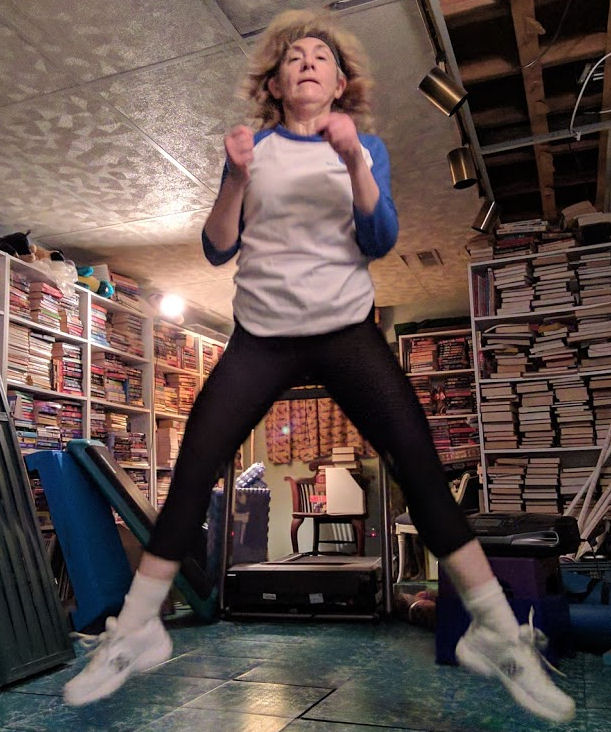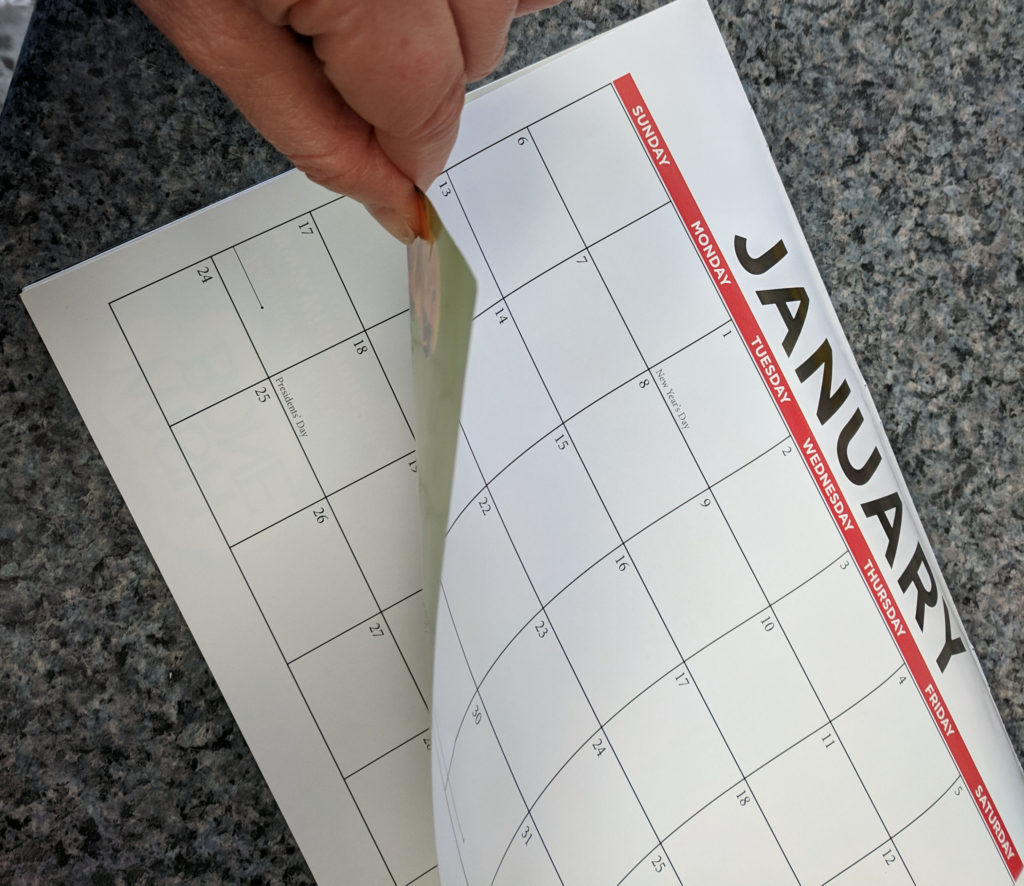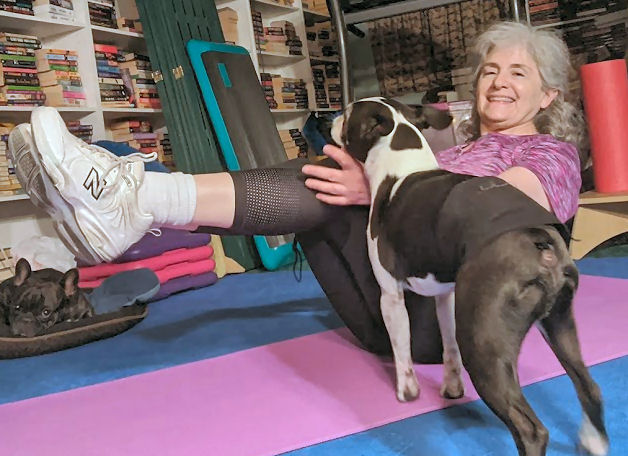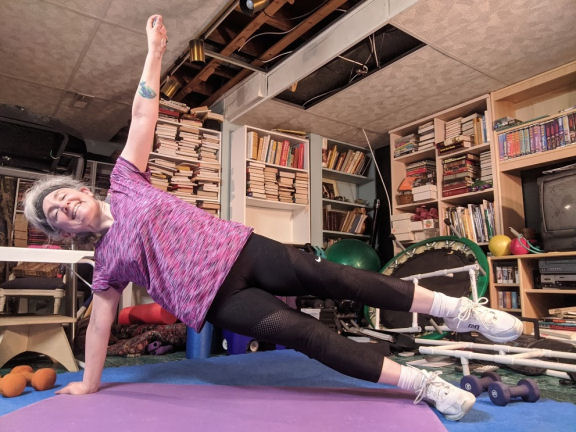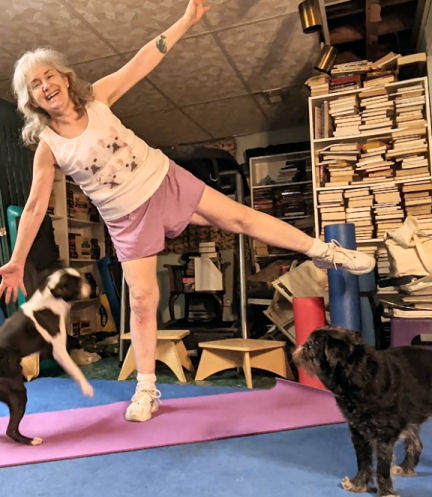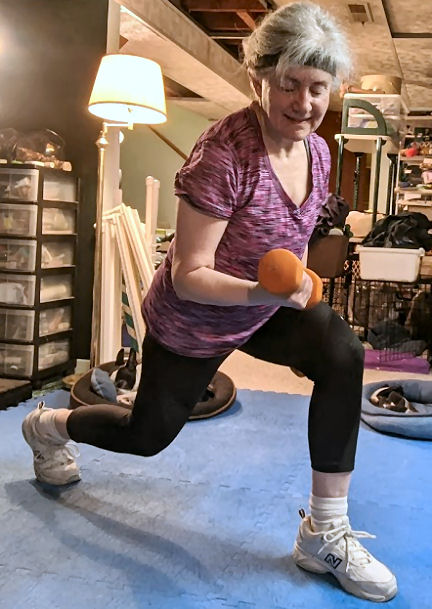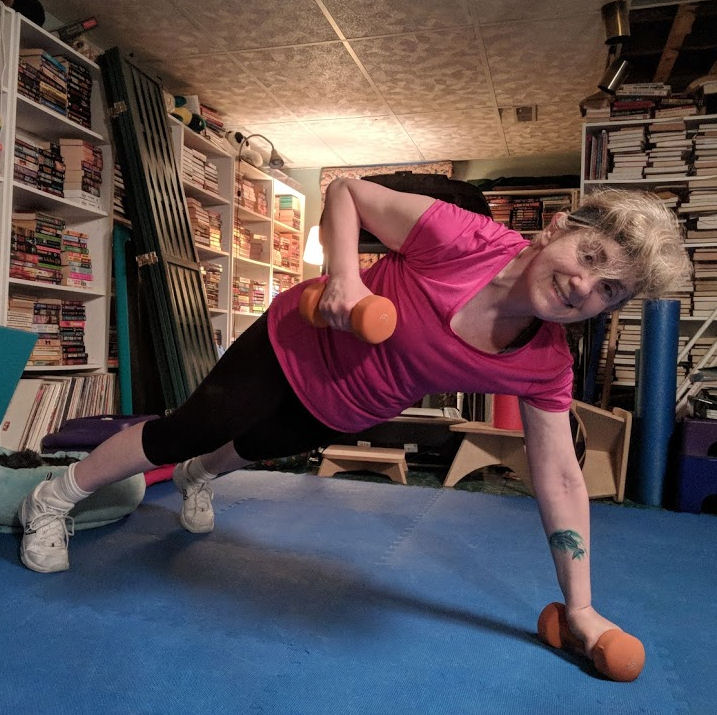My sister and I have been moving furniture lately – reorganizing the house. And some of that furniture was heavy. I wasn’t worried about being sore the next day, though. It’s not that I’m strong – I’m not. But I know how to lift things, and I also know that to do practically anything without pain you have to engage your core.
If you’ve ever taken a Pilates class, you’ve probably heard the instructor tell you to do that. Much of Pilates movement focuses on the core and in order to get any benefit, you have to engage the muscle you’re working.
What is the core?
Your core combines all of the stabilizing muscles surrounding your spine and pelvis. That’s basically everything from your rib cage down to your legs. Your transverse abdominis is the deepest layer of muscle. It wraps around your waist like a girdle, connecting the rib cage to the pelvis. Next are the internal and external obliques which criss-cross your abdomen. These muscles help with twisting and bending. Finally is the rectus abdominis, or what we recognize as a “six-pack.” This also helps with bending and control of the pelvis. As you can see, there’s a lot in your core.
Why engage your core?
Having a strong core helps keep us upright and without a curved spine.It also helps us breathe.
As I’ve described – engaging your core helps prevent pain and injury and is crucial for your healthy aging. I’m prone to lower back pain, as many people my age are. Making sure my core is engaged prevents that “twang!” that I used to be all too familiar with in my back. Feeling that extra control in my core gives me a sense of security. It’s like that big belt weight-lifters and professional movers wear on the outside of their clothes. But I take mine everywhere, and I can use it any time.
How do you engage your core?
Robin Long, Pilates instructor, suggests you start to feel your core by lying on your back on a mat. If you can, bend your knees so your feet are flat on the floor. Your transverse abdominis automatically engages when you exhale. So put your hands on your abdomen and feel the muscles as you breathe. Feel it more as you pull your abdomen toward your spine. Try to feel it tighten all the way around your waist. Try not to suck it in. Breathe normally. This will pull your stomach in a bit and you’ll sit taller. As you’re pulling in your transverse abdominis, try pulling your pelvic floor up and in. You’ve got core muscles there, too!
When you’ve got the feeling of a tight core on your back, try it on all fours.
And work on feeling your core during other exercises and your everyday life! The balance exercises we do in the Facebook Group Balance for Fitness Balance for Life also focus on the core. (And you can get that download today!)
You’ll be able to lift furniture without fear of pain when your core is engaged. But don’t unless it’s absolutely necessary.


